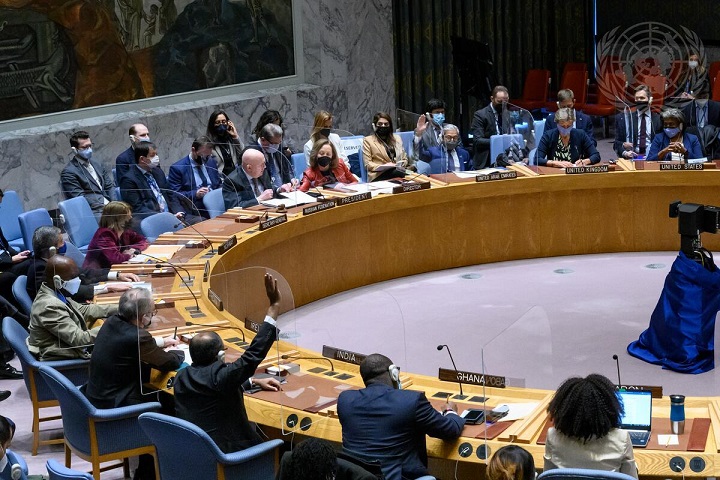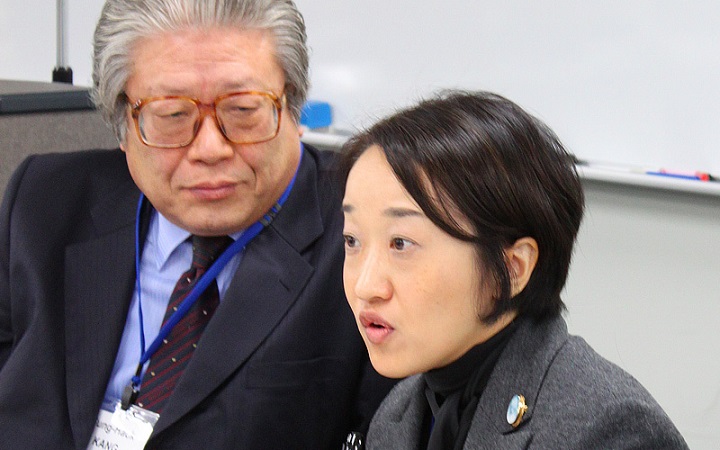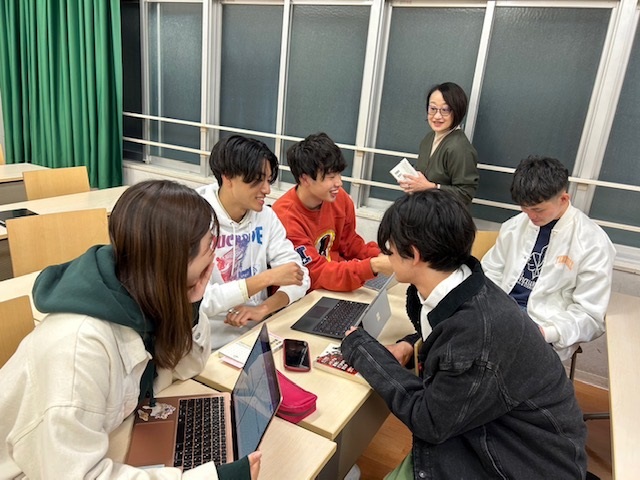reseach
Exploring coercive measures imposed for the interest of international peace and security
Miki Honda, Professor
Department of Global Politics, Faculty of Law
Posted Jan.27,2023
Faculty Profile
Professor Miki Honda has a deep knowledge of international affairs from her previous career as a staff writer for an English-language newspaper. She has been deepening her research on economic sanctions and other coercive, focusing on the United Nations as a mechanism for maintaining peace in the international community.
Exploring coercive measures for peace and their dilemmas
My area of expertise is international relations, and my research looks at coercive measures for restoring international order. For many years, my focus has been on the actions of the United Nations (UN), particularly economic sanctions imposed by the UN Security Council (UNSC).
The UNSC is primary responsible for maintaining peace and security in the international community. The five permanent members (P5: the United States, the United Kingdom, France, Russia, and China) and ten non-permanent members elected by region discuss and take the lead in determining the existence of a threat to the peace and, in some cases, resort to imposing sanctions or even authorize the use of force to maintain or restore international peace and security. Resolutions other than procedural matters require the approval of all P5, and opposition from any one of them can prevent the adoption of any resolution. A prominent example would be the Russian invasion of Ukraine that began in February 2022. Due to Russia's veto, not even a resolution condemning Russia could be adopted.
The dilemma is that major countries and corporations in each country are, at their own discretion, imposing economic sanctions and other measures to stop civil wars and invasions, but the repercussions of these measures threaten the peaceful lives of the citizens caught up therein.
World peace is based on relations among states strategically maneuvering to protect their own national interests. Given this premise, how much can external coercive measures contribute to the restoration or maintenance of peace? Seeking an answer to this question is of immediate concern, but the answer will not be easily found in an interwoven international community. I hope to continue exploring whether there are any measures that can lead to even the slightest positive outcome.

Debate on a resolution at the UN Security Council, a highly political forum where countries discuss international peace but also pursue their national interests (Ⓒ UN Photo/Loey Felipe)
I am striving to visualize data showing the effects of economic sanctions
Before becoming a researcher, I was a staff writer for the English-language newspaper The Japan Times. The turning point for me was the Gulf War that began with Iraq's invasion of Kuwait in 1990, an event that had a major impact on countries around the world, even leading to calls for Japan to cooperate in peace operations, and that highlighted the importance of the role played by the United Nations in maintaining international peace and security. Witnessing this historic event made me think about how security and order in the international community should be approached, and I decided to study international relations at graduate school. I had planned to return to work as a journalist after completing my studies, but my curiosity for learning was insatiable and I decided to pursue an academic career.
When considering the security of the international community, the effects of economic sanctions are difficult to judge. Since the purpose of sanctions is to defuse a conflict by demoralizing a party to the conflict, sparking a backfire by tightening the screws so severely that the party is driven to the brink would be undesirable. Conversely, interventions that have little impact do not constitute sanctions.
To accurately determine the effects of economic sanctions, it is important to quantify and visualize data to show what measures have produced what effects. This in itself makes me feel the need to upgrade my research in future by incorporating knowledge from the field of data science and adopting an interdisciplinary perspective.
Fortunately, Hosei as a comprehensive university offers opportunities for cooperation with researchers in other fields and an environment that encourages freedom of research. I intend to utilize these resources to strengthen and develop my research capabilities while expanding my network and research scope.

A photo taken during a discussion with East Asian researchers on security in Northeast Asia and the UN’s approaches (at a symposium held in 2009)
I hope students to develop sensitivity to what is happening in the international community
I hope that students will gain a variety of “real” experiences. There is a significant difference in the impression left on the mind by the same scenery when you go there and experience it firsthand compared to when you look at it through a smartphone screen. It is very unfortunate that travel was restricted for several years due to the COVID-19 pandemic.
However, there are still things you can do as COVID transitions from pandemic to endemic. First of all, please broaden your horizons of interest and take a look at a variety of things. Although some restrictions remain in place due to infection control measures, I encourage students to go out and try new experiences if you can. Each experience will become a seed for practical wisdom that will enhance their skills and qualities as a person.
The international community is not a creation of great personages wielding political power. Each of us is a responsible stakeholder in the international community. I hope that students will acquire the sensitivity to see what is happening in the world not as somebody else’s problem but rather as a matter of relevance to themselves.
Once you realize that a problem exists, you will want to think about what you need to do to solve it or gain the wisdom and intelligence to make even some slight change. I believe that this ambition will nurture the future, so I would like to continue being there for students and encouraging them.

The 2022 seminar involves group research on the topic “Threats of Global Issues: Questioning Contemporary Multilateralism”
Miki Honda, Professor
Department of Global Politics, Faculty of Law
After graduating from Seikei University, she worked as a staff writer for the English-language newspaper The Japan Times. She subsequently earned a master's degree and then Ph.D. in international relations from Waseda University’s Graduate School of Asia-Pacific Studies. After working as an associate professor at Waseda University’s School of Social Sciences, she was appointed in April 2017 to her current position as professor in the Department of Global Politics at Hosei University’s Faculty of Law. She serves as a board member of the Japan Association for United Nations Studies and she chaired the annual convention executive committee for the Japan Association of International Relations in 2022.

